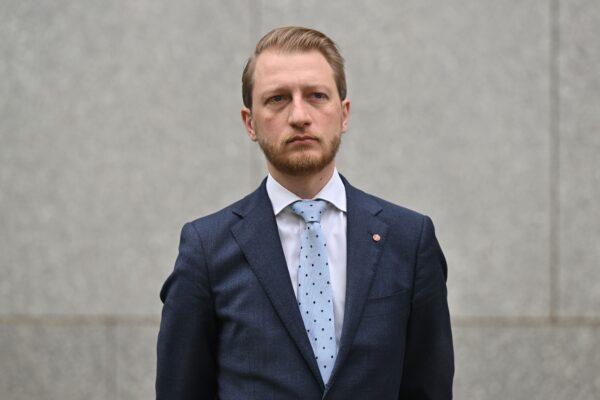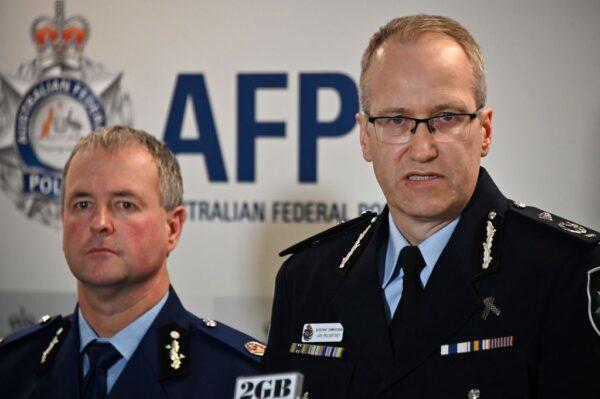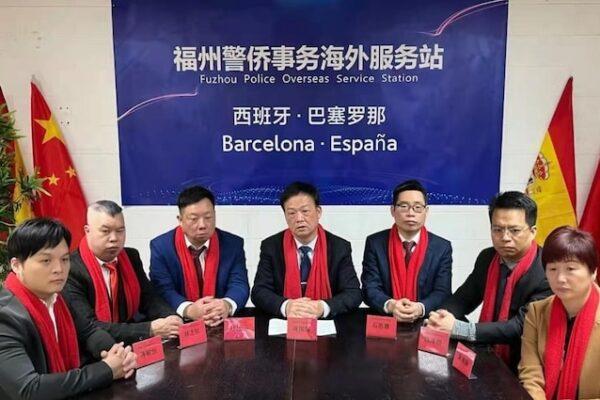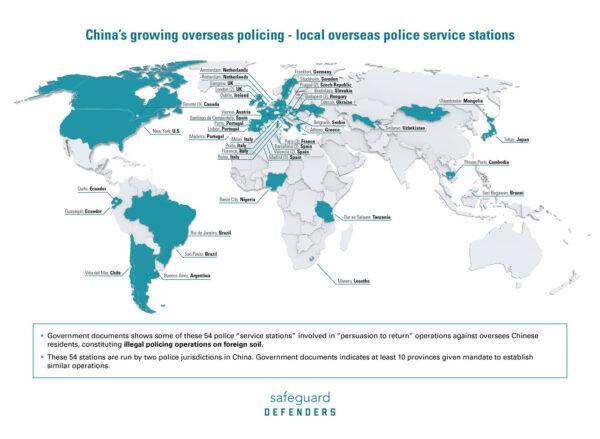Australian Federal Police (AFP) has said that it doesn’t believe Chinese police are running an active “contact point” in Sydney.
The “contact point” was established by the Public Security Bureau of the city of Wenzhou, China, the Australian Broadcasting Corp. (ABC) reported.
AFP Deputy Commissioner: ‘I Don’t Believe it’s Active’
James Paterson, Shadow Minister for Countering Foreign Interference, asked AFP officers about the Sydney overseas police station during a Senate estimates hearing on Nov. 8 in Canberra.
Ian McCartney, Deputy Commissioner for the AFP, told the committee that he was aware of the report, but he did not have any concerns about the Sydney contact point.
“Is that because this was a declared presence, a cooperative arrangement with the AFP, or because you don’t have concerns because you don’t believe it’s active?” Paterson asked.
“I don’t believe it’s active,” McCartney responded, refusing to say if the point was active before.
“In terms of the work we do in the countering foreign interference space, it doesn’t stand still. It is ongoing, and I’m not prepared in an opening hearing to detail those issues.”
Senior AFP officers did agree that if Chinese police operated the contact point without alerting AFP, it would be a breach of the bilateral agreement.
“We have an MoU (memorandum of understanding) with MPS (Ministry of Public Security), and if either of us gets out of bounds, then that MoU is rescinded, and then we stop doing our cooperation,” AFP Commissioner Reece Kershaw told the hearing.
“Having met the MPS in India at Interpol (International Criminal Police Organization), we know the rules, and so do they.”

Time to Assess AFP’s Cooperation with Beijing: Defence Expert
The AFP has long had a close relationship with their Chinese counterpart.In 2019, the AFP celebrated the 20-year anniversary of working with Beijing’s police.
Michael Shoebridge, director and CEO of Strategic Analysis Australia, said the AFP having “no concerns” over Beijing’s overseas police stations in Australia does not reassure him.
“It’s very credible that such police centres are being operated by Chinese police in Australia and that these have the effect of intimidating and surveilling Chinese nationals here along with Australian citizens,” Shoebridge said in an email to The Epoch Times.

“There is a risk that AFP is putting too high a value on the police-to-police relationship they have with China’s Ministry of Public Security and are reluctant to act or speak in ways that might risk that cooperation.
“It’s time to reassess this policing partnership because the Ministry of Public Security is a key arm for internal repression inside China and now clearly has been shown to also have a coercive international role.”
Deputy Commissioner McCartney said the AFP would consult with other departments before making a decision when Paterson asked if the MoU with Beijing would be extended when due to be reviewed in 2023, considering that Australia-China relations had deteriorated since the COVID-19 pandemic.
“As you say, it’s a different environment now,” McCartney said.
‘Babes in the Woods and Simply Ignorant’: China Expert
However, McCartney’s commentary that the Sydney “contact point” was not active has triggered harsh criticism from those acquainted with China.“This Australian deputy commissioner only knows about Australian police, not Chinese police, not China, let alone politics,” Dr. Chin Jin, Sydney-based Chair of Federation For A Democratic China, told The Epoch Times in an email.
“The truth of it being active won’t be seen by the deputy commissioner. What can be seen by him is a bland illusion.”

Chin said this is due to the difference between people living under different political systems in the East and the West: “People living in western free countries have become very lacking in vigilance due to their privileged lives.”
The Chinese embassy in Canberra has previously denied the existence of the Sydney “contact point.”
“All those who are helping out are volunteers without payment,” a spokesperson told ABC. ”They are not Chinese police officers, nor [are they] personnel sent by Chinese police authorities. They have never, and will never, engage in criminal investigations or other law enforcement activities.”
Chin, a Dr. of Social Sciences from the University of Sydney, lambasted the AFP for believing in the embassy’s statement.
“[They’re] babes in the wood. Simply ignorant,” he said. “Beijing has been infiltrating the West in a silent manner.”
“Confucius Institutes, Chinese media and Chinese communities, business, academia, media, and even politics in Australia are all targets of the CCP’s infiltration.”
He suggested that the AFP fell for the statement out of naivety.
“People with ‘good intentions’ like the deputy commissioner can never see through, nor understand it.”




